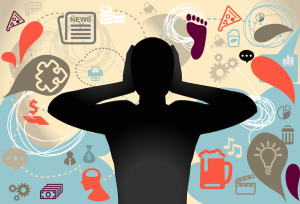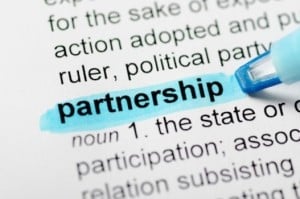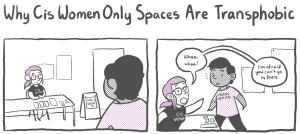Celia: Hey, y’all. This is another video in a series I’m doing with Everyday Feminism, which is a website dedicated to helping you stand up to and break down everyday oppression. In this video I want to talk about what healthy communication actually looks like in a romantic relationship, what it means to have it, and how to achieve it.
I may be young, but I’ve been in a relationship for almost a decade now, and I think our lasting is largely due to our ability to express ourselves openly to each other, and do it in a constructive, healthy way. We’re certainly not perfect, and not every relationship is meant to last forever, but I wanted to share my insights on communicating with your partner.
I am guilty of doing and saying the wrong things sometimes, even now, but I can reflect on, and recognize the habits of communication which are helpful, and which ones are not. That’s what this is going to be about.
Basically, everyone is always talking about how communication is the most important thing in a relationship, but what does healthy communication actually look like, and how can we recognize unhealthy communication? I wanted to start by talking about what healthy communication looks like, generally speaking, in a romantic relationship.
First thing is saying what you need from your partner. These needs will change over time. Your partner cannot read your mind, you have to tell them exactly what would help you when you’re struggling. When things are good, tell them what they are doing that you are liking.
That makes it sound like I’m talking about sex, which, of course, should also involve communicating your needs, but I mean simple relationship things like, “When I’ve had a bad day, I just need you to be really gentle with me. I just want to go de-stress in front of the TV”, and things like, “I had a really great day with you. I need more days where it’s just you and me, and we have no plans. Let’s do that more often.”
That makes it crystal clear what you need for now, and for the future, but keep communicating about how these needs change, because I guarantee they will.
The next thing is checking in with your partner on what they need from you. Pretty simple. Just asking things like, “Did you have a good day? How can I help you? What do you feel like doing today?” Things you probably already ask them, but just making sure that you’re asking because you really want to know the answer, I guess.
Next is validating your partner, so listening and responding to what they say to you. Saying things like, “Oh, my God, and then what happened?”, like, “Are you kidding me? What did you do then?” “How can I help?” “Why?” Things like that, just validating that what they’re saying is of interest to you, and that you’re listening. That is often all that someone wants after a long day, or a big thing happening.
Honestly, after being in a relationship for a long time, it can be easy to sort of lessen how validating you are, when you’re having a conversation with your partner, but you’ve really got to to make sure that you’re actively listening and responding to them, so that they feel heard.
Next, recognizing how your partner’s identity affects them. If you’re in a relationship with someone who is not exactly like you, there will be things that they have not experienced, that you experience regularly, and vice versa. Things like street harassment, or micro aggressions. Learn to listen to your partner when they talk about these things, and recognize that their movement through the world is likely different from yours. This just requires us to take each other into account in an intersectional sense, and be sensitive to the different needs that arise from an oppressed identity.
My partner is a man, but he knows that men often talk down to me, and make me feel unsafe. I can vent to him about this stuff and he does not get defensive. He realizes that this is something, as a cis man, he has never experienced, and he just takes me at my word when I say what it’s like.
Now I want to talk about what healthy communication looks like in an argument, or in some kind of disagreement. This is when it’s going to be a lot harder to have healthy communication, because when you’re all worked up, it’s hard to remember these things, but these are just my tips for making it easier.
First thing is, talk to each other face to face. If you’re in a long-distance relationship that might not be possible, but even Skype is significantly better than texting. I text a lot, and I’ve had my fair share of text arguments, but one thing that I’ve found is that it’s much easier to fight through text than it is to make up and forgive each other through text. I think that’s because texts are so easy to misinterpret, especially if you’re already upset, so texting about something serious will often lean to miscommunication.
If there’s something serious on your mind, you should simply talk to the person face-to-face. That way you can read the other person’s emotional response a lot easier, and you can argue, but you can also forgive each other when the argument has played it’s course, and hug, and make up, things like that.
Next is honesty, and this is obviously easier said than done. I’m not talking about keeping big secrets, big secrets are obviously not part of a healthy relationship. I’m talking about admitting when you’ve made a mistake, telling your partner when they’ve pissed you off, being honest about saying how it is, instead of making excuses or protecting each other unnecessarily.
You don’t have to be honest in a rude way, but you can just set the tone of the relationship as, “This is how it is. We are strong enough to know the truth, and to figure it out together.” Even if the truth is that things aren’t great right now, they are much more likely to improve if you’re both on the same page, rather than one of you hiding your uncertainty from the other one.
Last, active listening. I have found that when I’m upset, it helps if I rephrase what my partner is trying to say, to clarify it to myself, and see if I’m correct. Usually, if I’m mad, I’m not correct about it. Usually, I’m misinterpreting, because I’m upset or angry. If I say, “Oh, so you’re saying that we shouldn’t do this?” My partner can now see how I’m misinterpreting his words, he can restate them, like, “No, I just mean we shouldn’t do it today,” or whatever.
That way the blame for misinterpreting is mitigated quickly, and we can move on. The argument might not be totally over, but the narrower the focus of the disagreement, the easier it is to squash. Listen and repeat what you heard, and be honest about what is bothering you.
Last, I want to go over just a few things to watch for, in terms of unhealthy communication. The first thing you want to watch for is unhelpful criticism. Telling your partner that it bothers you when they leave dishes in the bedroom is a lot different than telling them that they’re a slob. One has an easy remedy, clean up a bit more, the other is a statement about their personality or their character. Watch that what you way is really what you mean, and something that they can actually do something aobut.
That leads to the next point, which is to watch for things like aiming to hurt. If you and/or your partner resort to name calling, mocking, or insulting each other when things are tense, that’s something that you should try to address. My partner and I have a rule of no name calling. He’s never called me a name.
I may have slipped up a few times and called him an asshole, when I was really upset, but I recognized my mistake and I apologized afterward, once we’d cooled down. Avoid saying anything with the intention to hurt, because they will remember your words.
Last is withdrawing. I know it can be difficult from some people to not withdraw from confrontation, but for healthy communication, you have to be willing to at least communicate about the issues. You can walk away and collect your thoughts, but you should come back willing to give a hard conversation a go, because if you’re having a hard conversation and you get worked up, you might say something you regret.
You can always take a time out and calm down before returning to the conversation, but ultimately, the conversations have to be had. Try not to withdraw and just hope it will go away, because you need to be able to talk these things out.
There’s obviously a lot more ways for communication in a relationship to be healthy and unhealthy. These are just some of the thoughts I’ve collected over the course of my relationship. Communicating is not easy. It can feel awkward, forced, unfair, but it is ultimately the most important aspect of being in a rewarding relationship, I think.
Conflicts will always arise. Even Beyonce has relationship problem. We just need to learn how to stop, breathe, think, talk, and listen to each other, and your relationship will thank you.
I’ll see y’all next time.




















